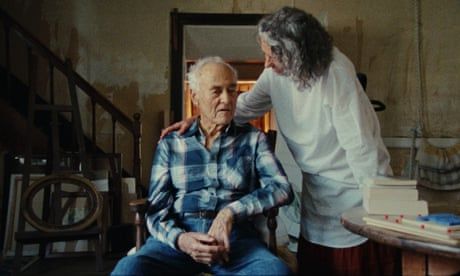
Harald Hutter sets his documentary in his parents shabby-chic home, a metaphor for his ageing academic father’s loosening threads of reality
Horst is an ageing academic who has lived a full life, enriched by learning, teaching and love; now his son, film-maker Harald Hutter, has decided to create an intimate and often abstract experimental documentary portrait of his father on 16mm film. Taking place over two days, what the film captures, without overtly talking about it too much, is his father’s experience of dementia, and the gradual dismantling of the intellectual faculties that have been so important to him throughout his life. In a sense the film is about the process of erosion: dementia is not a fixed state condition, but a gradual slippage, and not even a linear slippage at that. Horst has better days and some memories that remain clear, even as other important facets of his life trickle away from him like sand in an hourglass.
Horst’s house is the main location for the film and functions as a visual metaphor for his condition. He shares it with his wife, and it has lapsed into a state of genteel disrepair, half of a shabby-chic dichotomy where the shabby is gradually encroaching, bit by bit, on the chic. There are whole walls full of beautiful books, the fruits of an academic life, but there are also strips of wallpaper peeling off the wall. Hutter includes plenty of shots of nice tasteful furniture cluttered with badly organised paperwork, an evocation of a life that still has much of the outward shape and structure it always did, but whose internal organisational principles have begun to go awry.
Continue reading...